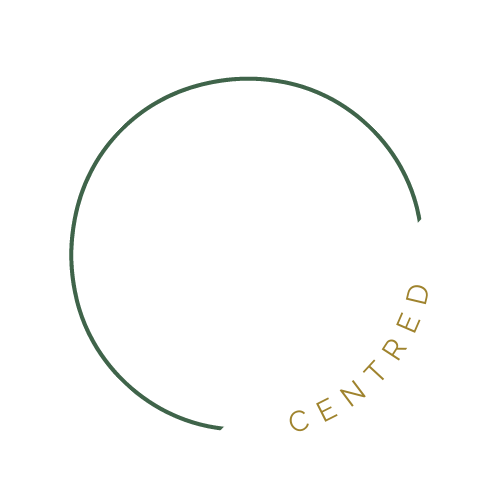A diagnosis can feel like a life sentence. You walk into a doctor’s office, listen as they name your symptoms and subsequent diagnosis—autoimmune disease, chronic fatigue, depression, or psoriasis— and suddenly it becomes your identity. It dictates your treatment, your outlook, and how you perceive your body and health journey.
I’ve lived this. Years ago, I was diagnosed with chronic fatigue syndrome and Lyme disease. The prognosis was grim: exhaustion, pain, and a lifetime of managing symptoms with medications that offered only fleeting relief. But instead of accepting this diagnosis as my fate, I questioned it. What if the label wasn’t the issue? What if the real cause ran deeper than what mainstream medicine could see? That’s when I turned to fasting, detoxing, and healing my gut—and everything changed.
Take my client with a chronic skin condition. When they came to me, they were drained, overworked, and acutely aware of their stress levels. And they were desperate for healing. Yet their doctor’s diagnosis of stress-related eczema felt dismissive, offering little explanation for their broader health concerns. The diagnosis gave them a label but didn’t address the underlying issues. Rather than investigating the root cause, their doctor handed them a prescription—a quick fix that masked symptoms rather than resolving the imbalance. And how exactly does a cream fix stress? This is the challenge with conventional treatment: it only scratches the surface, while the real issue runs much deeper.
The importance of seeing beyond the label
When we receive a diagnosis, it’s easy for it to define us. A label can shape how we view our health and approach treatment. However, what we often miss is that diagnoses—whether autoimmune diseases, skin conditions, or mental health struggles—are merely symptoms of a deeper issue. The body, in its infinite wisdom, sends signals when something is out of balance. These signals—whether eczema, fatigue, or chronic pain—are clues to the root cause.
Every person’s body responds differently to external factors. Diet, stress, sleep, and exercise all play significant roles in how we feel and function. These elements interact uniquely for each individual. That’s why a one-size-fits-all approach to health does not work. Healing isn’t linear, nor is there a quick fix. It’s a journey that requires patience, self-discovery, and a willingness to look beyond the surface.
Fasting is central to my approach because it taps into the body’s natural ability to regenerate and restore itself. Regardless of the diagnosis, fasting activates essential processes that are not only transformative but crucial for healing at a cellular level. However, fasting isn’t a standalone solution. My protocol includes sleep hygiene, stress management, nutrition, and exercise plans to ensure that the healing process is supported, sustainable and long-lasting. Each element supports the body’s natural rhythms, helping to maintain the benefits of fasting over time.
The gut: a central player in your health
The gut is central to many health conditions, including skin disorders like eczema. Research has shown a close link between gut health and skin health, often referred to as the gut-skin axis. When the gut is compromised—due to poor diet, exposure to toxins, chronic stress, or inflammation—the entire body suffers, including the skin. Many skin issues like eczema, psoriasis, and acne can be traced back to gut dysfunction. The gut houses around 70% of the immune system, a role crucial for both mental and physical health. A compromised gut can trigger immune responses, causing inflammation throughout the body and affecting other systems, including the brain. The communication between the gut and skin means that when the gut is out of balance, it can cause skin flare-ups and contribute to other systemic issues, including mood disorders, brain fog, and fatigue.
The power of fasting in gut repair
Fasting plays a pivotal role in repairing and restoring gut health. By providing the digestive system with a break, fasting allows the gut to focus on repair and regeneration. This process promotes autophagy, where the body removes damaged cells, including those in the gut lining, helping to restore integrity. This is especially beneficial for conditions like leaky gut (intestinal permeability), where the intestinal barrier becomes compromised, allowing harmful substances to enter the bloodstream. Fasting reduces permeability and supports healing of the gut lining, reducing inflammation and restoring balance.
Fasting also supports the gut microbiome, promoting a balanced environment for beneficial bacteria, essential for digestion, immune function, and even mood regulation. As the gut heals, the reduction in inflammation and improved permeability often leads to fewer skin flare-ups and improvements in both physical and mental health.
For my client, we completed a 10-day water fast to help reset his body and eliminate accumulated toxins. Beyond the physical benefits, the fast provided the necessary space to stop and slow down—something often hard to achieve in our busy lives. This period of rest allowed him to disconnect from external pressures and gain clarity. It also created a chance for spiritual reflection and self-discovery. Fasting gave him time for introspection, helping him reconnect with his inner self and uncover the root causes of his health struggles. In this quiet space, he found not just physical healing but also mental and emotional clarity.
However, fasting alone often isn’t enough. Pre- and post-fast nutrition are crucial for optimising benefits. Before fasting, it’s essential to nourish the body with nutrient-dense foods that prepare the gut. These include fibre-rich vegetables, healthy fats, and fermented foods that promote a healthy microbiome. After fasting, the body needs a gentle reintroduction to food to avoid overwhelming the digestive system. A balanced approach with easily digestible foods rich in vitamins, minerals, and antioxidants helps rebuild and nourish the gut lining, supporting its ability to heal. This integrated approach ensures the benefits of fasting are maximised, supporting long-term gut health and overall physical and mental well-being.
The role of nutrition in healing
Nutrition is foundational to healing. Diet makes up 80% of our health, yet most medical schools offer doctors less than 20 hours of nutritional training in their 6 year degrees. When you address nutrition, you’re not only supporting the gut but also laying a strong foundation for the body’s repair. That’s why I begin every healing journey by focusing on food—what you eat and what you avoid. It’s about nourishing the body with the right nutrients and eliminating foods that contribute to inflammation and imbalance.
For my client with eczema, I recommended eliminating common inflammatory foods like gluten, dairy, processed sugar, and seed oils. These foods trigger inflammation and exacerbate gut issues, worsening skin conditions. I also encouraged increasing their intake of whole, nutrient-dense foods—especially those rich in fibre, antioxidants and healthy fats—to support gut health and reduce inflammation.
But nutrition isn’t just about what you eat—it’s about how your body reacts to what you eat. Food sensitivities can cause eczema like flare-ups, so a personalised approach to diet is essential. Identifying food triggers helps guide you toward the foods that work best for your unique body.
Stress, sleep and exercise: the other critical components
Alongside diet, stress and sleep are critical to healing. Chronic stress can exacerbate gut dysfunction and trigger inflammatory responses that lead to conditions like eczema. Elevated cortisol levels, often due to prolonged stress, can break down the gut lining, making it more susceptible to leaky gut.
In my practice, I help clients develop personalised strategies for managing stress, often it is about just giving them permission to take a step back and relax. Stress management is highly individual, so it’s important to find what works best for you. Reducing stress and creating a balanced lifestyle not only supports the gut but also benefits the skin and overall health. For example, we focus on minimising stress caused by toxins in our environment, including the products we use. An easy switch from chemical-laden moisturisers to all-natural tallow products can significantly reduce the additional stress placed on the body.
Sleep is an often underestimated pillar of health. Research consistently shows that inadequate sleep disrupts stress management, weakens the immune system, and negatively impacts gut health. A 2019 study in The Lancet found that optimising sleep improved metabolic function, reduced inflammation, and enhanced overall well-being. Prioritising sleep isn’t just about feeling rested—it’s about allowing the body to regenerate and heal at a cellular level. Implementing effective sleep hygiene strategies, such as maintaining a consistent sleep schedule and reducing screen time before bed, can significantly improve health outcomes.
Exercise is another essential part of the healing process. Physical activity promotes circulation, supports detoxification, and reduces stress, all contributing to better overall health. For my client with eczema, I recommended gentle exercises like walking and swimming—activities that improve circulation and reduce stress without overloading their body.
However, not all exercise is beneficial for everyone. Intense or excessive physical activity can increase inflammation and trigger flare-ups, especially if the body is already under stress. Like nutrition and stress management, exercise should be tailored to the individual.
Healing is a journey
While fasting offers incredible benefits, it must be approached responsibly. Fasting should always be considered with your unique health needs in mind. For those with chronic conditions, it’s essential to seek medical advice before starting a fasting regimen. Working with a doctor ensures that fasting is integrated safely into your healing process.
Healing is never linear. It takes time, patience, and effort. There will be ups and downs, but with the right approach—focusing on the root cause, not just the symptoms—you can restore balance and move toward true healing.
When I last checked in with my client, he was overwhelmed with gratitude. His energy was at an all-time high, and he now had a deeper understanding of his health. He felt empowered to take control of his well-being, no longer relying on a cream to suppress symptoms whenever a flare-up occurred.
Doctors, practitioners, and specialists all have their place in the healing process, but true transformation comes from looking beyond the diagnosis and taking your health into your own hands. Your health is not defined by a label. By addressing the root cause and providing your body what it truly needs, you can reclaim your well-being and live with vitality, free from the limitations of a diagnosis.

